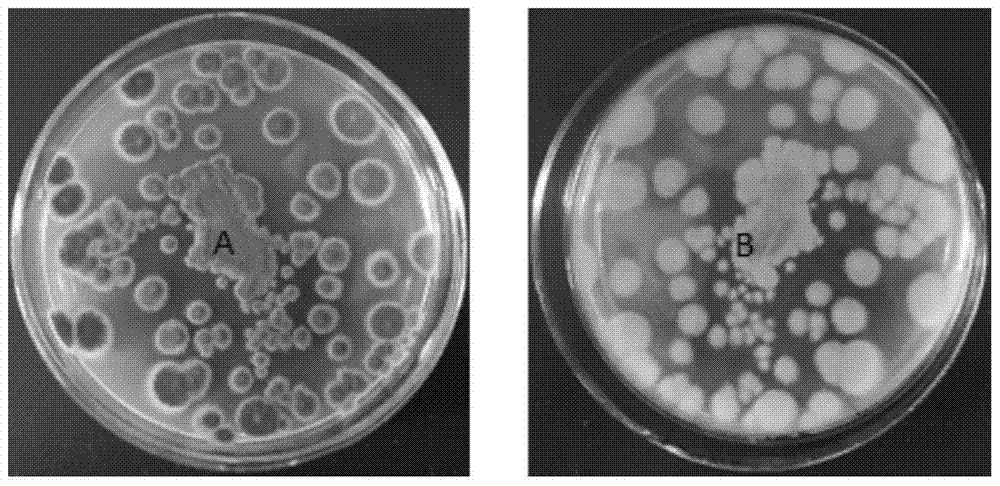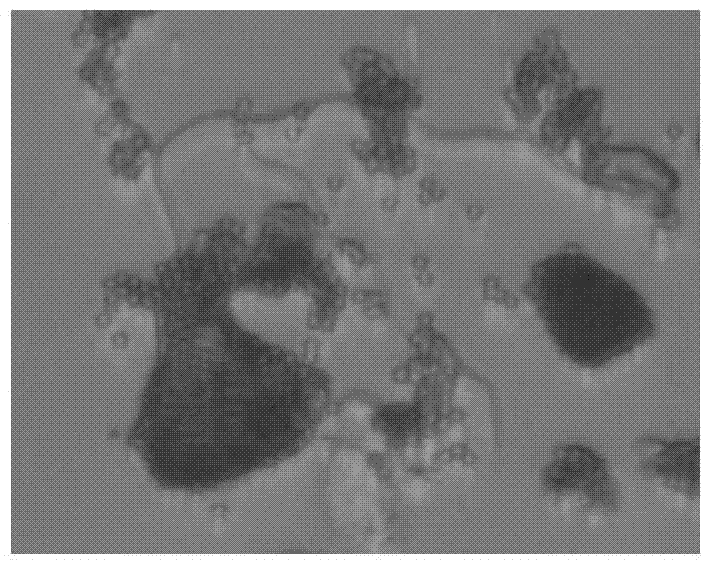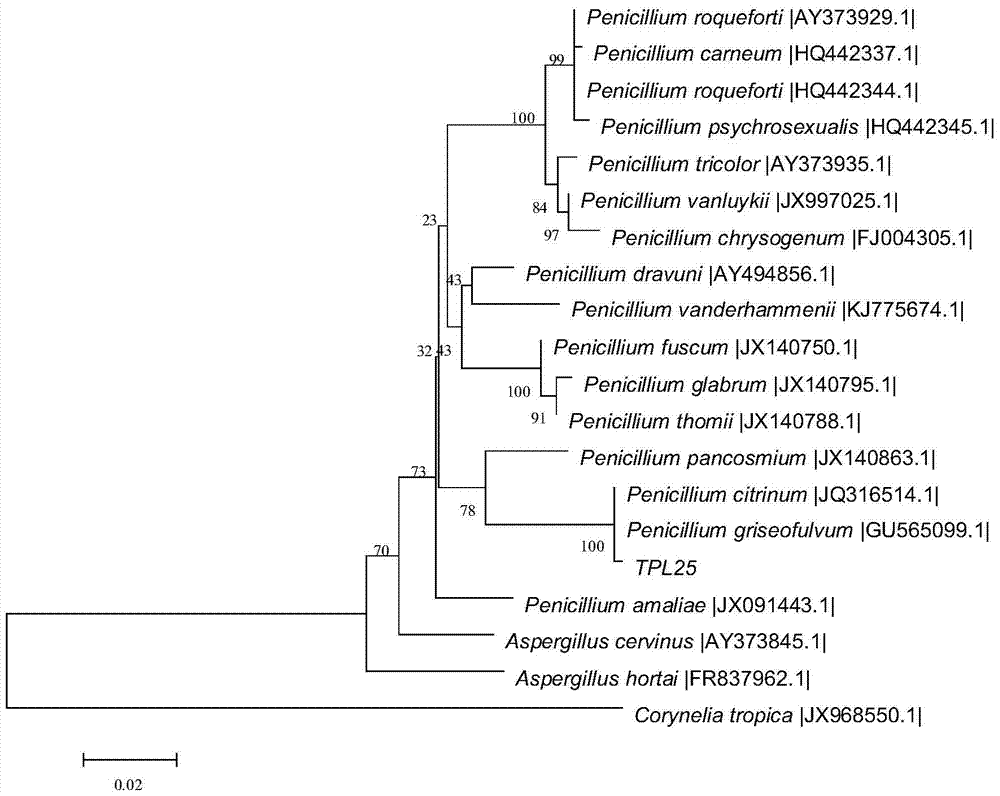Endophytic fungus tpl25 of edamame and its application in the control of plant diseases
A technology of endophytic fungi and edamame, applied in the field of microorganisms, can solve problems such as threats to the safety of agricultural products, destruction of ecological balance, and decline in crop yields.
- Summary
- Abstract
- Description
- Claims
- Application Information
AI Technical Summary
Problems solved by technology
Method used
Image
Examples
Embodiment 1
[0035] Example 1: Isolation and purification of Penicillium griseofulvum TPL25
[0036]The Penicillium griseofulvum (Penicillium griseofulvum) TPL25 of the present invention comes from the leaves of edamame on the campus of Hunan Agricultural University in Hunan Province, China. Isolation method: Disinfection of the tissue surface: Rinse the gray edamame leaves with sterile water, and cut them into small pieces of 0.5cm×0.5cm. Disinfect the surface of the above materials in an ultra-clean bench, the procedure is: rinsing with 75% alcohol by volume fraction for 3-5min→1g·L -1 Rinse with mercury chloride for 30s-1min→5 times with sterile water. Separation and purification: Inoculate the sterilized tissue material on the poured PDA plate medium, 3-4 pieces per plate, and place it at 28±1°C for 3-7 days in the dark. When mycelia (colonies) grow out of the cuts along the outer edge of the material, the mycelium is picked by tip mycelium, and the mycelium is transferred to the pur...
Embodiment 2
[0037] Example 2: Identification of Penicillium griseofulvum (Penicillium griseofulvum) TPL25 strain
[0038] The strains were identified by combining morphological and molecular biological methods. Penicillium grisea TPL25 can grow on PDA medium, cultivated at a constant temperature of 28±1°C, the colony is light green at first, the edge is white, and later turns dark green, the texture is fluffy and granular, and conidia are produced in large quantities. Pale orange, soluble pigment similar to the lighter color on the reverse side (eg figure 1 ). Microscopic morphological features: conidia strung together, colorless, spherical (eg figure 2 ). The strain TPL25 was amplified by PCR using ITS sequence general primers ITS4 and ITS5 (ITS4: TCCTCCGCTTATTGATATGC; ITS5: GGAAGTAAAAGTCGTAACAAGG). Using TPL25 total DNA as a template, the PCR reaction conditions were: pre-denaturation at 95°C for 5 min; denaturation at 95°C for 30 s, annealing at 56°C for 30 s, extension at 72°C fo...
Embodiment 3
[0039] Example 3: Preliminary screening of anti-pathogenic fungal activity of Penicillium griseofulvum TPL25.
[0040] Under sterile conditions, use the plate confrontation method for primary screening (such as Figure 4 ), the endophytic fungus strain TPL25 and the pathogenic fungus were respectively made into cakes with a 6mm hole punch, placed on 1 / 3 of the PDA plate, cultured at 28°C, and observed whether the endophytic strains and the tested pathogenic fungi had Antagonism, and measure the width of the inhibition zone, and compare the activity of each endophytic fungal strain.
PUM
 Login to View More
Login to View More Abstract
Description
Claims
Application Information
 Login to View More
Login to View More - R&D
- Intellectual Property
- Life Sciences
- Materials
- Tech Scout
- Unparalleled Data Quality
- Higher Quality Content
- 60% Fewer Hallucinations
Browse by: Latest US Patents, China's latest patents, Technical Efficacy Thesaurus, Application Domain, Technology Topic, Popular Technical Reports.
© 2025 PatSnap. All rights reserved.Legal|Privacy policy|Modern Slavery Act Transparency Statement|Sitemap|About US| Contact US: help@patsnap.com



